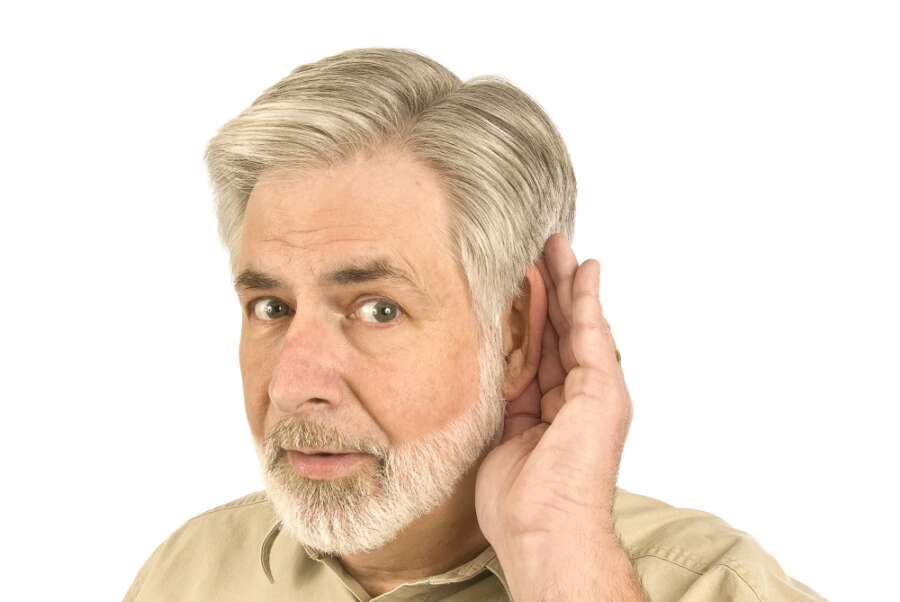
Research reveals that the hearing health of Brits is at risk from unsupported hearing loss. Even those with hearing aids admit to not wearing them and simply choose to cope without.
Copenhagen, Denmark, 16th November 2021. A hearing loss survey conducted by Hearing Aid manufacturer, Oticon, reveals that over a third of Brits admit to experiencing problems with their hearing. Of those, less than 20% have visited a hearing professional for advice and alarmingly, over a quarter said they had no plans to.
The results from the study of 2,000 UK adults* show that mostly, Brits are willing to wait to seek treatment until their hearing gets worse or affects their quality of life. Over half of Brits experiencing changes to their hearing, think that their hearing loss ‘isn’t that bad’. In stark contrast to these figures, Brits are much more concerned about noticing a difference with their eyesight, as 83% agreed that they would book an eye test as soon as they noticed a problem with their sight. Over three quarters said they would book an eye test if they experienced regular headaches.
The survey also revealed that almost half (47%) of Brits that have been diagnosed with hearing loss and choose not to wear hearing aids, do so because they ‘cope’ without, and even Brits that do have hearing aids are choosing not to wear them because they believe they also cope without (27%).
Thomas Behrens, Chief of Audiology, Oticon commented: “It is really important that hearing loss is treated. Even if a person feels they are coping, they are potentially putting themselves at risk for future health problems, not to mention missing out on a full hearing experience. Hearing loss is degenerative, worsening with age and noise exposure, and because we allow ourselves to get used to reduced hearing, we can often not realise just how bad it has become. Most importantly, people do not realise that they are not the best version of themselves. With hearing loss, the brain has to work harder and becomes overloaded, which makes you more tired, and the brain has less capacity to remember, so really, untreated hearing loss challenges who you are as a person.”
On top, untreated hearing loss can have a significant impact on health. For example, the overloaded brain is often left lacking the important exercise and positive stimulation achieved through good communications and active lifestyle, which are known to protect the brain against aging. This means that some typically age-related diseases, such as dementia, are accelerated. People living with reduced hearing tend to withdraw from social activities, which can increase the risk of depression. Also, hearing loss can even change the way the brain functions as it compensates for the lack of sound information that it receives by utilising other senses to help. However, the survey reveals that consequences are relatively unknown. Only 14% know that untreated hearing loss can speed brain ageing, only 20% know that brain functionality is altered, and less than half realise that hearing loss can lead to depression.
Choosing not to wear hearing aids
In addition to simply coping, Brits with diagnosed hearing loss gave other examples of reasons for not having hearing aids, including, that it makes them feel old, it is too much hassle, or they believe they are uncomfortable.
“Many people still associate hearing loss and wearing hearing aids with getting old, and unfortunately, choose not to seek treatment for this very reason,” added Thomas Behrens. However, the reality is that you can actually seem older by coping with, instead of treating hearing loss. Instead of hearing aids making us look old, the perception of our age is actually more influenced by our behaviours, such as frequently asking people to repeat themselves, or sitting with the TV up very loud. It is worth noting, that living with hearing loss can age us more quickly, aging our brains over time. We hope that people can overcome their association of hearing aids with age and ensure they get the support that could improve their quality of life.”
The hearing loss survey also reveals that a lot of people that have hearing aids are choosing not to wear them for performance reasons, including unpleasant sound from their devices when it is noisy (30%) or sound that is tinny or echoey (28%). In fact, less than half (42%) of Brits that have a hearing aid wear them all day. Over a third (35%) don’t wear their hearing aids every day.
“Hearing aid technology evolves very quickly nowadays. Companies such as Oticon, invest a lot of resources into hearing and hearing health research which translates into technology innovations that make a considerable difference to the hearing experience. Many people could be relying on devices with outdated technology, or because hearing loss is deteriorative, a hearing aid that is no longer providing the necessary support. It is important to visit a hearing care professional regularly. Having your hearing loss supported well can help you live a much more active lifestyle and in turn lower your risk of cognitive decline.”


